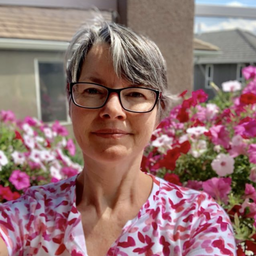Topic: Higher Education and Professional Development
My Session Status
ePortfolios for authentic assessment: What are the professional development/learning needs?
Debra Hoven, Pamela Walsh, Rita Zuba Prokopetz, and Rima Al Tawil, Athabasca University
Track: Evidence-based practices in teaching/ Volet: Pratiques de l'enseignement fondées sur des preuves
Type: Research presentation
Rationale for the study:
Eportfolios have been offered at educational institutions at various levels around the globe since the technology began being used in education (Danielson & Abrutyn, 1997; Hoven, 2020). Within the last fifteen years, eportfolio practice, as a form of authentic assessment, has been evolving, yet there are gaps in the literature about the nature and role of faculty development relating to eportfolio pedagogy and roles and good practices in higher education. Higher education institutions seem to recognize the importance of reflective practice inherent in eportfolios; however, it is unclear how faculty apply the process of reflection in their own teaching (Giaimo-Ballard & Hyatt, 2012; Hoven et al. 2021).
Eynon and Gambino (2016) and the European report of Scully, O’Leary and Brown (2018) argued that if done well, eportfolio-based professional development has the potential to support transformative student learning across the institution but that professional development is a critical component in reflective eportfolio pedagogy.
Research questions:
1) What professional development activities are available for university faculty for ePortfolio practice in courses and projects across a selection of Canadian universities; how were these activities chosen and developed; what activities are perceived to be effective; what lessons have been learned from PD opportunities;
2) What skills or characteristics are deemed to be important for faculty effectiveness in ePortfolio activities? What recommendations are offered or proposed?
Methodology:
Following institutional research ethics approval and funding, this exploratory interpretive research study enabled the research team to gain insights into the experiences of 11 instructors involved in ePortfolio activities in the nine Canadian universities identified as using ePortfolios. Our study relied on audio-video interviews with faculty, educational technologists, and instructional designers at the universities identified through an initial web search. Interviews were recorded, transcribed, and member-checking undertaken. We then analyzed the data, manually and using NVivo software.
Launching a Graduate Certificate in Teaching and Learning
Saul Carliner, Concordia University
Track: Learning architecture/ Volet: L’architecture de l’apprentissage
Type: Case study in innovation
Name of the case: Launching a Graduate Certificate in Teaching and Learning
Focus of the case: Design
Background:
To better prepare its PhD students for the academic job market, Concordia University launched a Graduate Certificate in University Teaching. Students took three tutorials (independent study courses) that had limited focus and then would have an “internship.” The program was limited to doctoral candidates (which significantly limited the pool) who had a guarantee to teach a reserved course (the limited number of courses that are set aside for doctoral students to teach, using a formula agreed upon with our part-time union). Not surprisingly, the program was not sustainable. So the decision was made to revamp the program significantly so it would be open to more students and could be sustained over time.
Problem addressed by the case:
The initial idea was to expand the focus beyond university teaching to include colleges and Cegeps (a unique college-like institution in Quebec that incorporates the last year of high school and the first year of university, as well as diploma programs in professional and trade areas). Informal conversations with teaching and learning staff suggested that instructors would be interested and institutions already worked with other universities on similar degrees. Informal conversations with continuing education staff suggested that they, too, might be interested. So we surveyed all three audiences and learned that interest did, indeed exist. They told us that the program would need to take into consideration the full-time working status of college and continuing education instructors, and student status of others. At the same time, Concordia’s School of Graduate Studies had an interest in developing micro-credentials: programs with as few as three courses.
Solution devised:
Graduate Certificate in Teaching in Higher and Continuing Education (C-TEACh). This program consists of a three-course micro-credential that provides foundations of learning (including basic learning theory, student-centered learning, and scholarship of teaching and learning), designing courses (which walks students through the process of designing a course syllabus and developing detailed designs for two lessons), and facilitating courses (which prepares instructors for their roles as facilitators, to teach lessons, handle challenging situations in the classroom, and facilitate related situations). Students can then choose to complete the microcredential or continue on for the entire certificate, which involves teaching a higher or continuing education course with at least 35 contact hours and linking that experience to the courses taken in this program. The program is intended for entirely online delivery, primarily blending the live virtual classroom with self-study materials.
Accessibility in an online communications course
Carol Sparkes and Carolyn Teare, Thompson Rivers University
Track: Learning experience design/ Volet: Conception des expériences d’apprentissage
Type: Case study in innovation:
Name of the case: Accessibility in an online communications course
Focus of the case: Design
Background
CMNS 1811: Professional and Academic Communication is credit course offered through Open Learning at Thompson Rivers University. It is delivered in an asynchronous format and a student has 30 weeks to complete it. The assessments are built around a case study on The City of Beautiful. With so many courses moving online due to COVID it is important to share ways to make to design an online courses to be accessible.
Problem addressed by the case:
The problem addressed is the accessibility issues remaining after document accessibility checkers, from Word for example, are used. Focus is on supporting those using screen readers.
Solution devised:
Unique solutions for each scenario.
Process for developing the solution:
We analyzed each situation as it presented itself. Creating tools such as OneStep.trubox.ca to help guide ourselves and share the approach with others.


